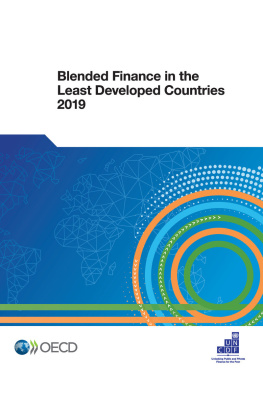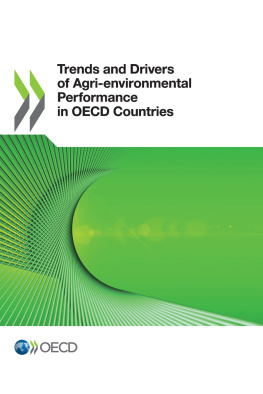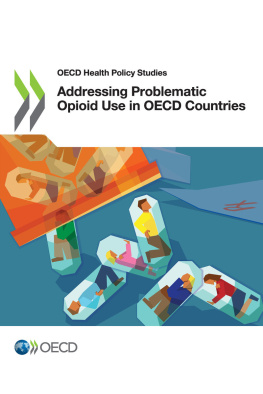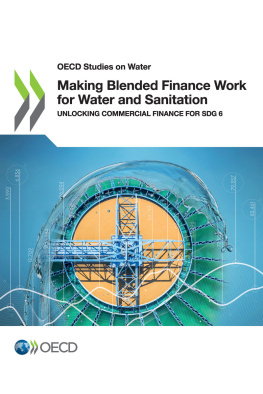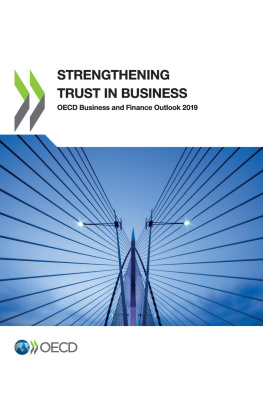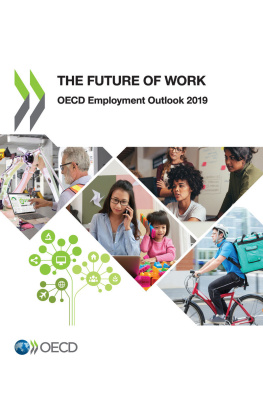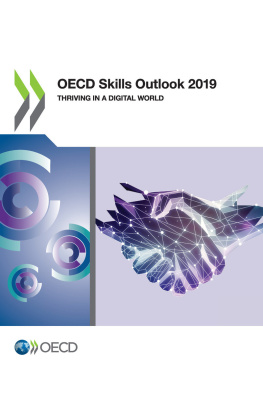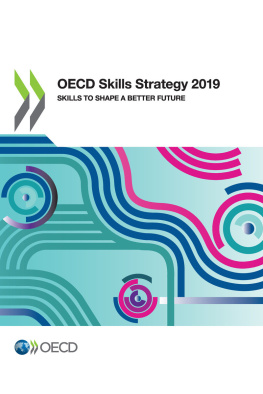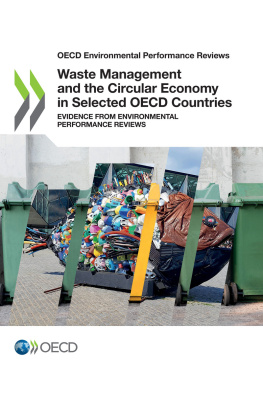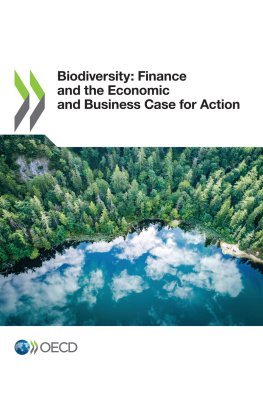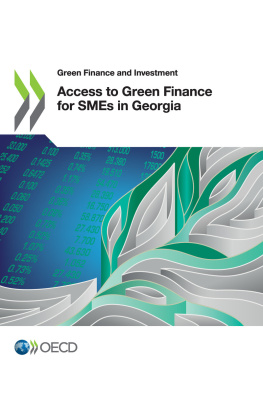OECD and UNCDF - Blended Finance in the Least Developed Countries 2019
Here you can read online OECD and UNCDF - Blended Finance in the Least Developed Countries 2019 full text of the book (entire story) in english for free. Download pdf and epub, get meaning, cover and reviews about this ebook. year: 2019, publisher: OECD Publishing, genre: Politics. Description of the work, (preface) as well as reviews are available. Best literature library LitArk.com created for fans of good reading and offers a wide selection of genres:
Romance novel
Science fiction
Adventure
Detective
Science
History
Home and family
Prose
Art
Politics
Computer
Non-fiction
Religion
Business
Children
Humor
Choose a favorite category and find really read worthwhile books. Enjoy immersion in the world of imagination, feel the emotions of the characters or learn something new for yourself, make an fascinating discovery.
- Book:Blended Finance in the Least Developed Countries 2019
- Author:
- Publisher:OECD Publishing
- Genre:
- Year:2019
- Rating:3 / 5
- Favourites:Add to favourites
- Your mark:
- 60
- 1
- 2
- 3
- 4
- 5
Blended Finance in the Least Developed Countries 2019: summary, description and annotation
We offer to read an annotation, description, summary or preface (depends on what the author of the book "Blended Finance in the Least Developed Countries 2019" wrote himself). If you haven't found the necessary information about the book — write in the comments, we will try to find it.
Blended Finance in the Least Developed Countries 2019 — read online for free the complete book (whole text) full work
Below is the text of the book, divided by pages. System saving the place of the last page read, allows you to conveniently read the book "Blended Finance in the Least Developed Countries 2019" online for free, without having to search again every time where you left off. Put a bookmark, and you can go to the page where you finished reading at any time.
Font size:
Interval:
Bookmark:
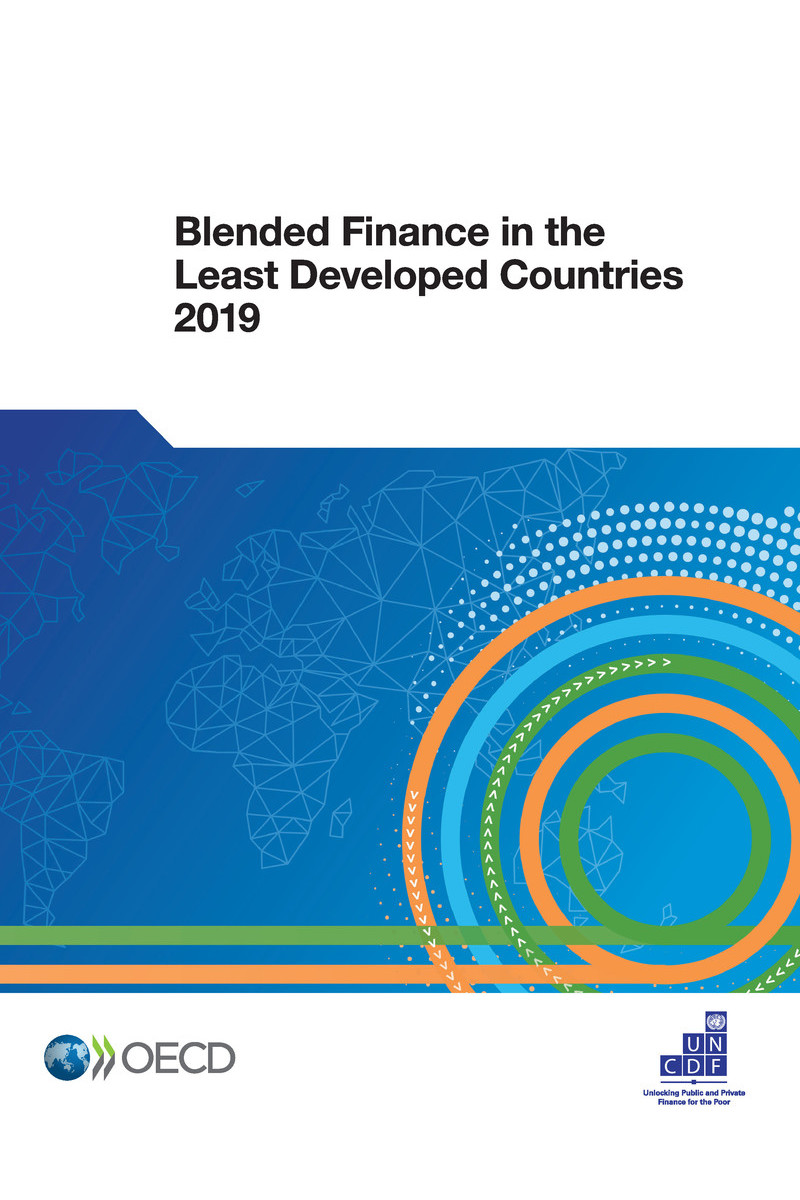
OECD/UNCDF (2019), Blended Finance in the Least Developed Countries 2019 , OECD Publishing, Paris, https://doi.org/10.1787/1c142aae-en .
The Sustainable Development Goals (SDGs) are all about transformation transformation driven by partnerships, risk-taking and innovation. Getting the finance piece of the SDGs right is essential. There is a lot of exciting progress being made, with new tools and instruments helping to mobilise resources for sustainable development. But we are still not moving fast enough if we are to get more finance aligned with our collective aspiration to leave no one behind.
Too little private finance gets invested in least developed countries (LDCs). As this report suggests, only 6% of private finance mobilised by official development finance benefits LDCs. With the recent downturn in official development assistance to LDCs, too little international public finance is being invested there as well. If current trends persist, development finance will entrench exclusions and inequalities between and within countries, rather than help overcome and transcend them.
That is why we need new ways of channelling more and better-quality public and private, domestic and international financial flows to the worlds most vulnerable countries, underserved communities, and projects in the missing middle. An underlying question of this report is therefore not whether we should pursue blended finance approaches, but how and when we can make them work better for LDCs and for those furthest behind.
Indeed, as this report highlights through a mixture of hard data and curated guest pieces, where they are appropriate and carefully deployed, blended finance approaches can be an important part of the financing solution for LDCs. They can help to catalyse much-needed additional resources for SDG-aligned projects that private investors would otherwise overlook.
But getting blended finance to work for LDCs requires important step changes. It requires that the development community is willing to experiment more and take more risks to work in challenging environments. It requires ensuring that blended transactions align with national priorities and respect national ownership, and form part of broader SDG financing strategies. It means we need to ensure that a growing use of blended finance does not lead to a decline in the overall share of development finance received by LDCs, where blending has proved to be more difficult. We also need to improve how we measure and report on the SDG impacts of blended operations, and we need more sharing of knowledge.
The research in this report can also help to build bridges between the development and private finance communities. Identifying how best we can achieve our shared objectives, including through blended transactions, is an essential prerequisite for achieving the vision enshrined in the 2030 Agenda.
The stakes are high. The time for action is now. We need to use all options at our disposal to close SDG financing gaps. Our hope is that this report, the second such instalment looking at blended finance in LDCs, prompts a lively debate on what more could or should be done when it comes to applying blended finance effectively and efficiently in a broader range of countries.

Jorge Moreira da Silva,
Director,
OECD Development Co-operation Directorate

Judith Karl,
Executive Secretary,
UN Capital Development Fund (UNCDF)

H.E. Mr. Perks Ligoya,
Ambassador and Permanent Representative of the Republic of Malawi to the United Nations and Chair of the Global Coordination Bureau of the Least Developed Countries
This report was jointly prepared by the OECD Development Co-operation Directorate (DCD), which is headed by Director Jorge Moreira da Silva, and by the United Nations Capital Development Fund (UNCDF), which is under the leadership of Judith Karl, Executive Secretary. The two organisations are deeply appreciative of the quality of this collaboration, which started in 2017.
Irene Basile, Policy Analyst, OECD and Samuel Choritz, Policy Adviser, UNCDF were the managers and lead authors of the publication. Within the OECD, the work was performed under the supervision of Haje Schtte, Head of Financing for Sustainable Development Division, with operational oversight from Paul Horrocks, Head of Private Finance for Sustainable Development Unit. Patrick Dougherty played an integral role in the drafting and in-depth data analysis. Ccile Sangar and Tomas Hos provided invaluable support for the latter task. Thanks also go to the UNCDF management team for their important guidance and inputs during the drafting process.
The OECD is deeply grateful to all of the respondents to the 2018 Survey on Private Finance Mobilised by Official Development Finance, who made this research possible. The quantitative analysis also benefited from the complementary information generously provided by Justice Johnston (Convergence).
Font size:
Interval:
Bookmark:
Similar books «Blended Finance in the Least Developed Countries 2019»
Look at similar books to Blended Finance in the Least Developed Countries 2019. We have selected literature similar in name and meaning in the hope of providing readers with more options to find new, interesting, not yet read works.
Discussion, reviews of the book Blended Finance in the Least Developed Countries 2019 and just readers' own opinions. Leave your comments, write what you think about the work, its meaning or the main characters. Specify what exactly you liked and what you didn't like, and why you think so.

